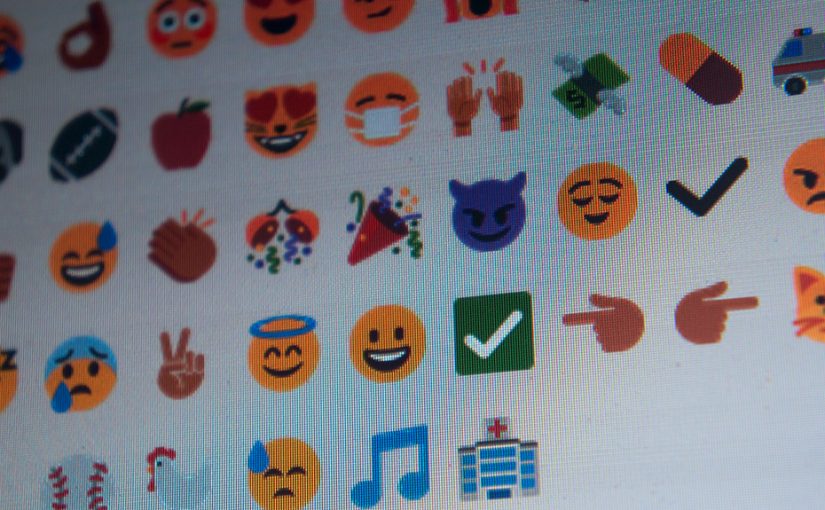This week’s readings and lecture by Dr. Lera Boroditsky prompted me to think deeper on the effects of language on learning, culture, and incidentally technology. One of the less articulated questions towards the end of the lecture video revolved around the potential and perceived changes to our languages as a result of novel technologies in the hands of our youth. Having done an ethnography assignment in ETEC565 focused specifically on my own classroom, a cultural study in ETEC521, and a multitude of other related projects regarding language and learning, I can fully recognize the impact language has on conveying culture, on one’s learning, and how one thinks and perceives their environment.
With that said, I’m interested to delve deeper into an idea that Gretchen McCulloch has spoken about: To what extent is the emoji not only changing the way we communicate, but the way we express ourselves, and ultimately, the way we think? To what extent is an emoji exchange also a language exchange?
I would encourage all to watch Gretchen McCulloch speak on Internet Linguistics here:
Gretchen outlines the introduction of emojis as a series of codes that didn’t initially work for every mobile provider; in fact, it was a process that needed standardization. In a way, what the Unicode consortium was doing was creating a codified ‘language’ where users could utilize a way for each device to essentially ‘speak’ to one another effectively. Isn’t code a computer ‘language’? I also appreciated how McCulloch characterized emoji use as a cultural mirror; a way in which to analyze our habits and proclivities as a society. Most interestingly, (and relevant considering our brief study of the OED last week) in 2015 the Oxford English Dictionary named the “Face with Tears of Joy” emoji as the word of the year, which in itself is somewhat problematic because it now begs the question whether or not an emoji is a word, let alone a language.
If we are defining language strictly in the sense of organizing words and sounds to create structured meanings for comprehension and knowledge exchange, then no, I don’t believe emojis are a language. However, if we are defining language as a mode of expressive communication between two parties, then emojis may be the most universally understood language in the world. What is language other than a tool of communication?
Clay Shirky, concerned primarily with the economic and and social effects of technology, commented on many McCulloch’s claims, saying:
“The most visible medium for written English was print, our metaphor for language was the book: fixed, authoritative, slow to change. Now that most written English is informal and online, our collective metaphor is shifting to language as a network: fluid, collectively negotiated, constantly altered” (NY Times, 2019).
With this said, I cannot think of a time prior to our current era where our collective metaphor has functioned in a world simultaneously ruled by both physical books and online content. I’m not sure that we are shifting to language entirely based online, or trying to adopt a middle ground and balance the current tensions between the two.
